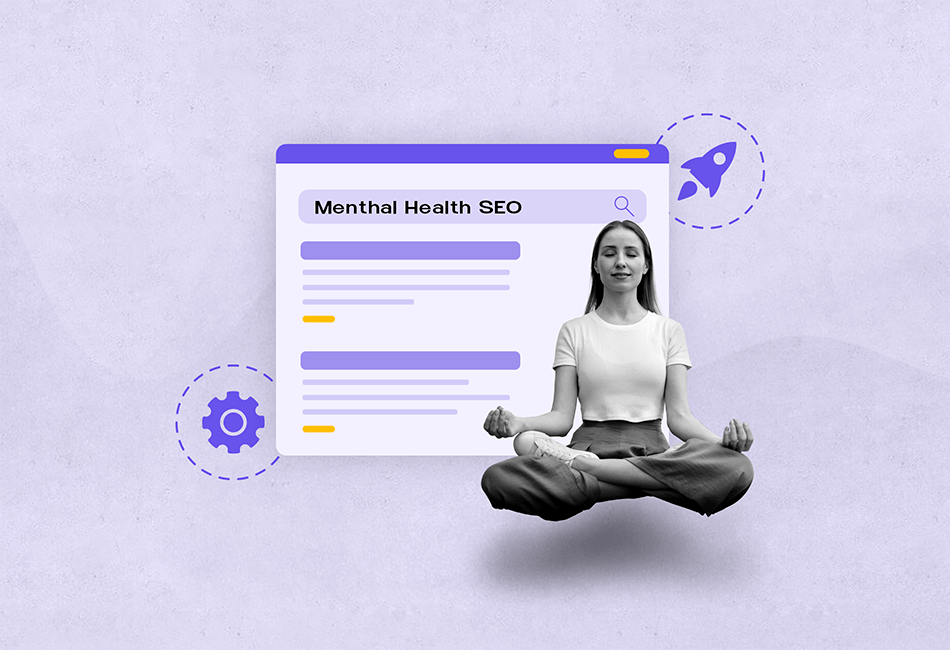Today, with the increasing attention towards mental health and its issues, it becomes important to easily access resources and services online. In key areas such as mental health, where stigma strongly prohibits service-seeking, a strong online presence could make the difference between reaching them or going without being found. Important to the function of connecting people with available support services are visibility and access to resources dealing with mental health. The key to effective SEO is the strategic choice of keywords—words or phrases that the user enters into search engines when looking for information or help. It is in this guide that we are going to consider the importance of choosing the right words in the optimization of mental health content to help professionals and organizations, including mental health, to reach and assist most effectively those walking the journey of mental ill health.
Why Mental Health SEO Keywords Matter
With the world battling the rising tide of mental health challenges, people are continually looking towards the internet for answers, resources, and support. With millions of people researching mental health-related topics online, the stakes for this information, services, and resources being discoverable and readily available to the people who need it most are high every day. The right mental health SEO keywords will come through in online content to make sure this vital information, services, and resources are findable for people who are looking for them. After all, it’s not really about the increase in website traffic or the high rank in the search engines; it’s about connecting people with help and support that they so much need. You will bridge the gap between the seekers and sources for effective mental health SEO keywords, bringing real ultimate change in countless lives.
Knowing Your Audience
Knowing your audience is key to picking powerful mental health SEO keywords. All this is about imagining that you are your audience when they go out there looking for mental health resources, support, and services. Who are they? What do they struggle with and worry about? What do they hope to achieve by reading your information? Think of the demographics, issues, and potential motivations of the ideal audience. Are they people struggling with anxiety, depression, or trauma? Are they caregivers who are in need of support for their loved ones? Are they mental health professionals who need resources to share with their clients?
By achieving more clarity about the target audience, you are in a position to find the very keywords and phrases that become binding to them. You will learn the exact words they are typing into the search engines, questions they are asking, and problems they are having. This allows you to craft content right to their needs and actually drive high-quality traffic to your website to build your brand as a trusted authority in the mental health space.
Brainstorming Keywords: Where to Start
Keyword research has always been a crucial step in ensuring any mental health SEO strategy is successful. In essence, this is where you dig deep into the minds of your target audience and get to understand the exact phrases and words that they would use when searching for resources and services to do with mental health online. Just try to put yourself in the shoes of your target audience member and ask, “What would I type into Google if I were having a hard time with anxiety, depression, or trauma?” This exercise should help you compile a list of keywords that would be targeted for your ideal audience.
List general categories related to your mental health services—counseling, therapy, or support groups. To make it clearer, you may even subcategorize them into subtopics under the main topics of “Cognitive-behavioral therapy for anxiety” or “Online support groups for depression.” Then, consider the emotional triggers and concerns that fuel the search for mental health resources: “feeling overwhelmed,” “managing stress,” or “coping with grief.” Those combos will really get the juices flowing, and from that concoction, you will reveal a treasure trove of keywords to build your content strategy.
Identifying Long-Tail Keywords for Mental Health
Brainstorming keywords is a strategic development in a functional SEO strategy for mental health. It’s where you dig deep inside the minds of your audience to uncover the exact phrases and words they’re using when searching for mental health resources, services, or information online.
Imagine yourself in the shoes of someone suffering from anxiety, depression, or trauma. What would you type into Google in order to find your blog? It is quite an empathetic point of view that will give you a hint of keywords to use, with which the audience will be best able to relate. You may start by listing the main topics that you think would be important for visitors interested in the mental health services of your organization, like therapy, counseling, support groups.
From there, we can further sub-categorize these topics into more specific subtopics—for example, “cognitive-behavioral therapy for anxiety,” or perhaps, “online support groups for depression.” Next, look at the emotional triggers and concerns that have one seeking out mental health resources, such as feeling overwhelmed, managing stress, or coping with grief. You add these together, and you’re starting to build up a treasure trove’s worth of long-tail keywords that just might guide not only your content strategy in all the right topics but—more importantly—help that right kind of visitor find your site.
Using Keyword Research Tools for Mental Health SEO
Keyword research tools take all the guesswork out of finding the perfect keywords for mental health SEO. These tools help you understand the depths of SEO, find the unfindable keywords, follow the trends, and see what your audience is searching for.
Ahrefs, SEMrush, Moz Keyword Explorer, and Google Keyword Planner have actionable intelligence that provides search volumes, competition, and relevance. With these tools, it’s easy to find the exact keywords that people use: “anxiety therapy near me,” “depression support groups online,” and craft your message so that it speaks to your audience.
This will, in a big way, help you increase the online presence and even draw many others to your site with the proper keywords to be used when most needed by people seeking mental health services.
The Importance of Latent Semantic Indexing (LSI) Keywords
LSI keywords are the related phrases and synonyms that assist search engines, like Google, in understanding your content. These are the subtleties that actually make the difference between just a generic, surface-level article and one that is really deep and full of information and also empathetic—really speaking to the needs of your target audience.
Think of LSI keywords as the threads that weave together to form a rich tapestry of meaning. These are the subtle relationships that make search engines understand the complexity and depth of your content—and they reward your site with higher search results and visibility. Including LSI keywords such as “anxiety symptoms,” “depression treatment,” and “mental wellness strategies” within your content will allow you to zero in on search terms as you produce one large resource that speaks to the myriad multifaceted needs of your audience.
Analyze Competitors' Mental Health Keywords
Understanding the targeted keywords from your competitor enables you to find the gaps present in the market, pick and redefine a new list of keywords, and eventually beat your competition. But where do you start? First, come up with a list of the top competitors in your space of mental health blogs, online therapy platforms, and mental wellness websites. Then analyze the set keyword strategy using Ahrefs, SEMrush, or Moz. For example, look for patterns or trends in their keyword usage, from what type of mental health conditions they target to what language and long-tail keywords they throw in there. You will be able to use it to find what the most traffic-driving keywords on the site are and even the ones that convert at the highest level. A reverse-engineered keyword strategy of your competitors will let you know what is working for them and what is not. This will enable you to develop a much more effective, informed SEO strategy that really delivers for your mental health website or blog.
Examples of Effective Mental Health SEO Keywords
- Anxiety relief techniques
- Depression symptoms and treatment
- Bipolar disorder facts
- PTSD coping strategies
- OCD therapy options
- Mental health resources
- Mental health therapists near me
- Online counseling services
- Cognitive behavioral therapy techniques
- Best therapy for depression
- How to find a psychologist
- Daily mental health exercises
- Mindfulness for mental health
- Mental health self-care activities
- Stress management techniques
- and much more....
Need help with SEO keyword research?
The strategic choice of mental health SEO keywords is not just about enhancing online visibility—it’s about connecting those in need with vital resources and support. As we’ve explored the importance of understanding your audience, identifying valuable keywords, and using advanced tools to refine your search strategy, it’s clear that each step is critical in crafting unique content that truly serves and reaches those affected by mental health issues.
At Huely Inc., we encourage you to take these insights and apply them to your content strategies. Begin your journey towards creating a more impactful online presence by visiting our website for more resources, or contact our expert team for personalized assistance in navigating the complexities of mental health SEO. Let’s make a difference together—start optimizing your mental health content today to bring help closer to those who need it most.





